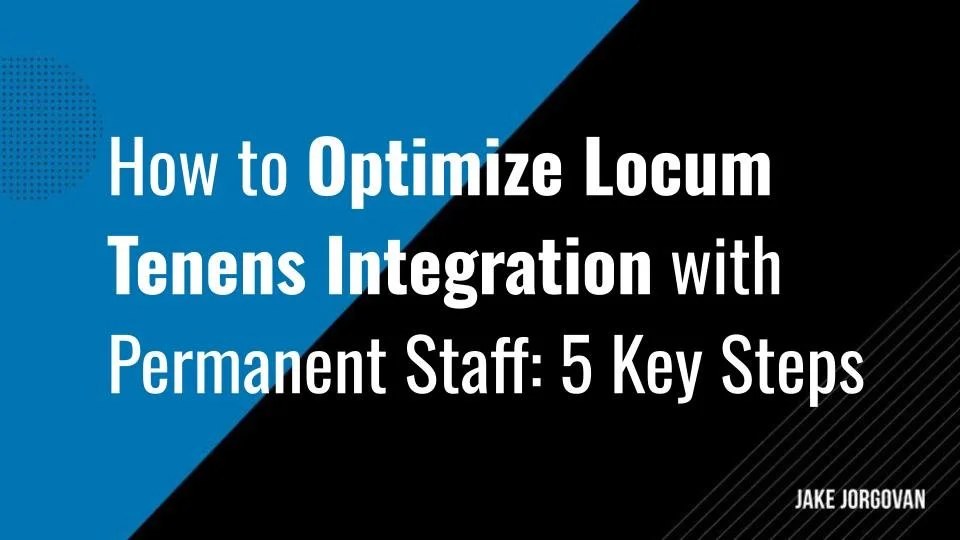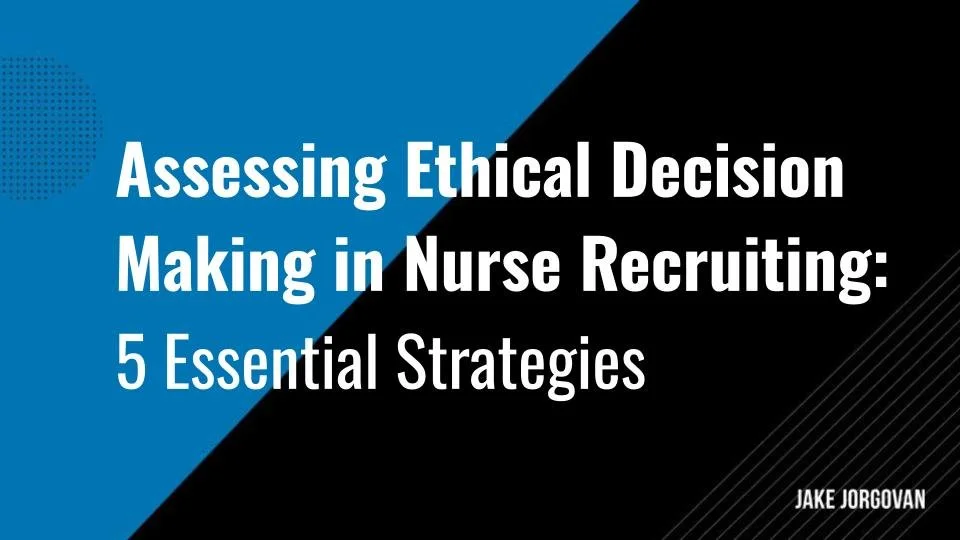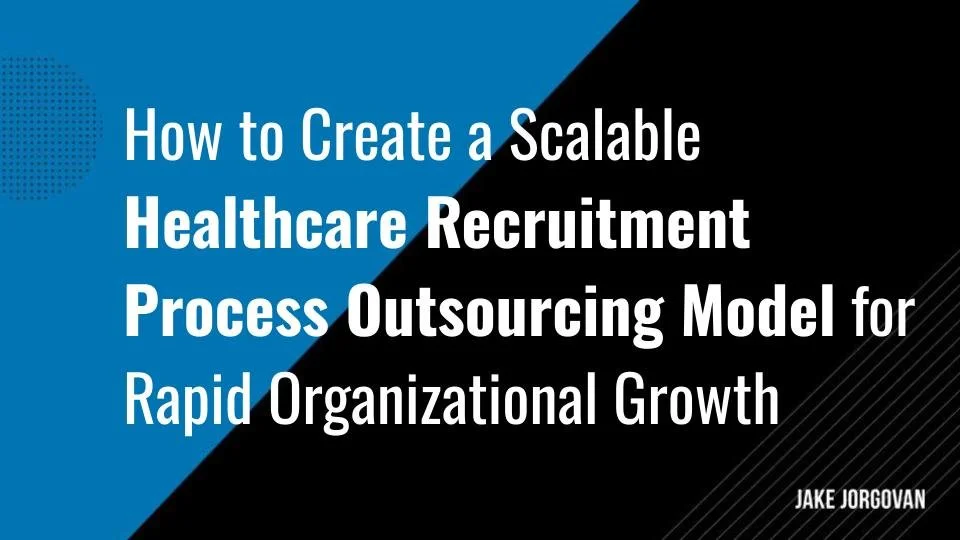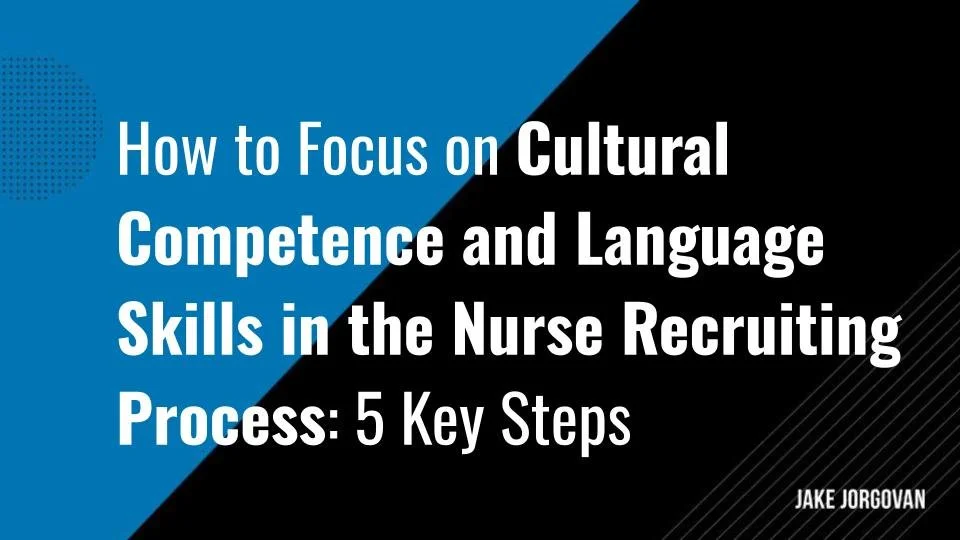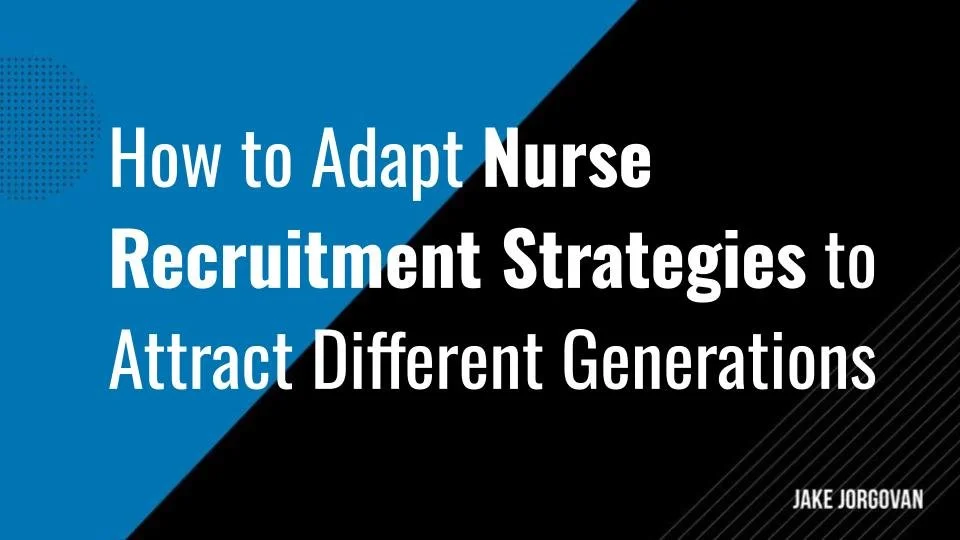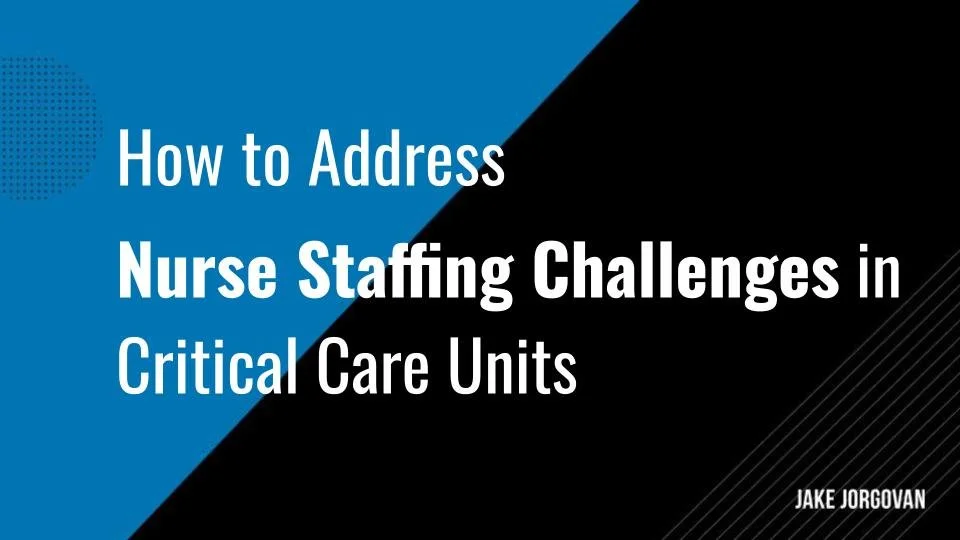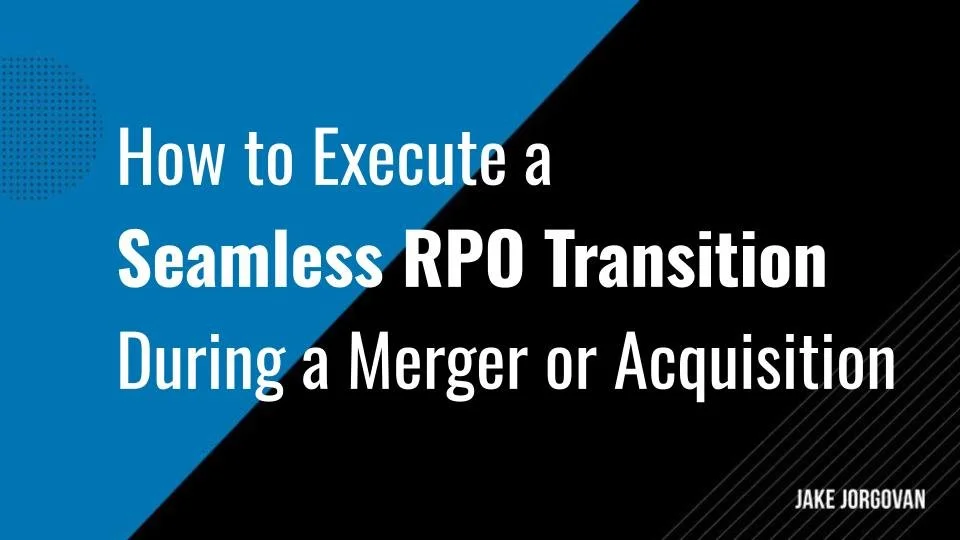Healthcare RPO and Compliance: Ensuring Regulatory Adherence in Recruitment
Healthcare RPO and Compliance: Ensure Regulatory Adherence in Recruitment
Healthcare Recruitment Process Outsourcing (RPO) is transforming how medical facilities meet staffing needs.
It streamlines recruitment, ensuring organizations have the right talent swiftly. In a field where precision is non-negotiable, RPO offers efficiency.
Compliance is the backbone of healthcare recruitment.
Regulatory adherence isn't optional; it's a safeguard against legal risks and patient harm.
HIPAA, EEO, and credentialing aren't just boxes to check—they're standards that protect lives.
This article explores how healthcare RPO providers ensure that recruitment processes don't just fill positions but do so within the strictest regulatory frameworks.
Importance of Regulatory Compliance
Healthcare recruitment operates under strict regulations like HIPAA and EEO.
These rules aren't just formalities — they dictate how sensitive data is handled and ensure non-discriminatory hiring.
Non-compliance in healthcare recruitment can trigger severe repercussions:
Financial Penalties: Organizations risk hefty fines for breaches, especially under HIPAA and EEO violations.
Legal Action: Non-compliance can lead to lawsuits, which drain resources and damage reputations.
Loss of Accreditation: Regulatory bodies may revoke certifications, impacting the organization’s ability to operate.
Patient Safety Risks: Inadequate background checks or credentialing lapses can endanger patient care, leading to malpractice claims.
Reputation Damage: Breaches in compliance undermine trust, leading to long-term damage to the organization’s standing in the healthcare community.
Non-compliance isn't just a legal risk; it compromises patient safety and organizational integrity.
Regulatory adherence is the cornerstone of maintaining trust and quality in healthcare.
Key Regulatory Requirements in Healthcare Recruitment
Credentialing and Licensing
Verifying credentials and licenses is fundamental in healthcare recruitment. It ensures that candidates meet stringent legal and professional standards.
This verification process protects patients by ensuring only qualified individuals administer care, thereby upholding the integrity and safety of medical services.
The credentialing process in healthcare recruitment is a meticulous evaluation that plays a key role in compliance:
Documentation Review: This step involves checking educational records, training certificates, and past employment references to verify each candidate's qualifications.
Licensing Verification: Credentialing staff confirm that candidates hold current, valid licenses for their respective roles, aligning with state and federal requirements.
Board Certifications: Special attention is given to ensuring that practitioners are board-certified, representing a higher standard of professional practice and expertise.
Ongoing Monitoring: The process includes continuous surveillance of a healthcare professional's credentials to respond to any changes in their certification status, disciplinary actions, or expirations.
Legal Compliance: Through these detailed checks, healthcare facilities maintain adherence to legal standards, avoiding penalties for non-compliance and safeguarding patient welfare.
Each step is critical to ensure that healthcare providers meet compliance mandates and deliver safe, reliable care.
Employee Background Checks
Thorough background checks are indispensable in healthcare recruitment.
They screen for criminal history, drug use, and sanctions to prevent unsuitable hires.
This scrutiny ensures that only candidates who uphold the highest standards of integrity and professionalism care for patients, thereby safeguarding both patient safety and institutional reputation.
Background checks are a key defense in healthcare recruitment:
Patient Safety: Screening for criminal history and drug use ensures that only individuals with clean records and sound judgment have direct contact with patients, reducing the risk of harm.
Protecting Trust: Sanctions and exclusions checks prevent the hiring of individuals barred from practice, safeguarding the organization's integrity and credibility.
Legal Compliance: Comprehensive background checks help meet regulatory requirements, reducing the risk of legal action and ensuring that the organization operates within the boundaries of the law.
These measures collectively protect both patients and the organization’s reputation.
HIPAA Compliance
HIPAA regulations mandate strict confidentiality and security measures during the recruitment process to protect candidate information.
Recruitment activities must ensure that personal health data and other sensitive information are handled securely, preventing unauthorized access and breaches, thereby maintaining compliance and safeguarding candidate privacy.
To ensure HIPAA compliance during the hiring process, healthcare organizations should implement the following best practices:
Data Encryption: Encrypt all digital files containing sensitive candidate information to prevent unauthorized access.
Access Controls: Limit access to candidate data to only those involved in the recruitment process, using role-based permissions.
Secure Communication: Use secure channels for sharing candidate information, avoiding email unless it’s encrypted.
Audit Trails: Maintain detailed logs of who accessed sensitive information and when, allowing for thorough audits if needed.
Regular Training: Provide ongoing HIPAA compliance training to recruitment staff, emphasizing the importance of protecting candidate information.
These practices help maintain HIPAA compliance and protect candidate privacy.
Insider Tip:
Ensure your recruitment software vendors comply with HIPAA by demanding they sign Business Associate Agreements (BAAs).
This not only secures data but also legally binds them to maintain privacy standards, safeguarding your organization against breaches that could originate from third-party negligence.
EEO and Anti-Discrimination Laws
Equal Employment Opportunity (EEO) and anti-discrimination laws ensure that hiring in healthcare is free from bias related to race, gender, age, disability, or religion.
These regulations mandate fair treatment throughout the recruitment process, preventing discriminatory practices and promoting a diverse and inclusive workforce in healthcare settings.
To ensure fair and non-discriminatory hiring practices, implement these strategies:
Standardized Procedures: Use consistent interview and assessment processes for all candidates to avoid bias.
Blind Recruitment: Remove identifying information like names and genders during initial screening to focus on qualifications.
Regular Training: Provide ongoing training for recruitment teams on EEO and anti-discrimination laws, reinforcing the importance of unbiased hiring.
Diverse Panels: Include a diverse range of perspectives on interview panels to reduce unconscious bias.
Data Monitoring: Track hiring data for patterns of potential discrimination, using analytics to identify and correct any issues.
These strategies help you maintain compliance and promote a fair hiring environment.
Insider Tip:
Consider implementing AI-driven tools in your recruitment process. These technologies can enhance decision-making by providing unbiased data analysis and candidate assessments. Deploying such tools helps you adhere strictly to EEO guidelines while refining your talent acquisition strategy to focus solely on skills and potential.
The Role of Healthcare RPO in Ensuring Compliance
Expertise in Regulatory Adherence
Specialized healthcare RPO providers are adept at navigating complex regulations.
They maintain up-to-date knowledge of compliance requirements across HIPAA, EEO, and credentialing standards, ensuring recruitment aligns with current laws.
This expertise mitigates compliance risks and secures the integrity of hiring practices.
Choosing the right healthcare RPO provider offers significant advantages in mitigating compliance risks:
Expertise: RPO providers possess deep knowledge of regulatory frameworks. Their proficiency ensures your recruitment processes are always aligned with the latest compliance standards.
Risk Reduction: By handling compliance, RPOs decrease your liability, protecting you from potential fines and legal challenges.
Focused Training: RPOs provide targeted training to their staff, which is often more comprehensive than what internal HR teams might receive. This training ensures that all processes are conducted under stringent compliance guidelines.
Technology Usage: RPOs employ advanced technology tools designed to maintain compliance, like automated systems for thorough background checks and credential verification.
Continuous Monitoring: They conduct ongoing assessments to ensure compliance, adapting swiftly to any changes in regulations. This proactive approach prevents lapses that could lead to non-compliance.
Use RPO providers to enhance compliance, allowing you to focus on core operations while ensuring recruitment integrity.
Technology and Data-Driven Approaches
Healthcare RPOs harness technology and data analytics to enhance recruitment compliance. These tools systematically track and audit recruitment activities, ensuring adherence to regulations.
They also optimize hiring workflows by analyzing trends and performance metrics, leading to more efficient and compliant recruitment strategies.
Healthcare RPOs employ AI and automation in candidate screening and compliance checks to streamline and enhance accuracy:
Automated Credential Verification: AI systems automatically verify candidates' credentials against databases, ensuring all qualifications meet necessary standards without human error.
AI-Driven Background Checks: These tools swiftly scan and analyze vast amounts of data, including criminal records and sanctions lists, to identify any red flags that would disqualify a candidate, significantly speeding up the process.
Compliance Algorithms: AI algorithms are tailored to monitor specific compliance criteria, alerting teams if a candidate does not meet regulatory requirements or if there are discrepancies in documentation.
Bias Reduction Software: AI helps mitigate unconscious bias by focusing evaluations on candidates' skills and qualifications, ensuring recruitment practices align with anti-discrimination laws.
These technologies not only safeguard compliance but also enhance the efficiency and integrity of the recruitment process.
Benefits of Outsourcing Compliance in Healthcare Recruitment
Cost-Effectiveness and Efficiency
Outsourcing compliance-related tasks to healthcare RPO providers offers significant cost and efficiency benefits:
Reduced Training Expenses: RPOs bring specialized compliance knowledge, eliminating the need for extensive internal training programs. This specialization cuts costs associated with developing and updating compliance training materials and sessions.
Streamlined Hiring Processes: By leveraging RPO expertise, healthcare organizations can accelerate recruitment cycles. RPO providers use optimized procedures and technology to quickly identify and process compliant candidates, reducing time-to-hire.
Lower Risk of Penalties: Expert handling of compliance by RPOs minimizes the risk of breaches that could lead to costly fines. This proactive approach to compliance ensures continuous adherence to regulations without the need for crisis management.
Economies of Scale: RPOs operate across multiple clients, allowing them to spread the cost of compliance tools and resources. This scalability provides cost efficiencies not typically available to individual organizations.
These factors combined lead to a more cost-effective, efficient recruitment operation, freeing up resources for other strategic initiatives.
Reducing Legal and Financial Risks
Regular compliance audits by healthcare RPO providers play a key role in mitigating legal and financial risks:
Early Issue Identification: Compliance audits systematically review recruitment practices, identifying any deviations from regulatory standards early. This early detection allows for swift corrections, reducing the potential for costly legal complications.
Documentation and Record Keeping: Audits ensure that all necessary documents and records are maintained accurately and are readily available for inspection. This meticulous record-keeping is essential for defending against any claims or investigations that may arise.
Updated Compliance Measures: RPO providers continuously update their compliance strategies to reflect the latest regulations. Regular audits help integrate these updates seamlessly into recruitment processes, ensuring ongoing adherence without disruption.
Risk Assessment: These audits include a thorough risk assessment, pinpointing vulnerabilities within the recruitment process. Addressing these risks proactively prevents future legal challenges and associated financial liabilities.
By maintaining rigorous audit protocols, RPO providers help healthcare organizations stay compliant, thereby significantly reducing their exposure to legal actions and financial penalties.
Challenges and Best Practices in Maintaining Compliance
Adapting to Regulatory Changes
Healthcare organizations often struggle to keep pace with rapidly changing healthcare regulations.
Constant updates require frequent revisions of compliance protocols, placing heavy demands on resources.
This fast-paced change can lead to gaps in compliance, increasing the risk of penalties and impacting patient care quality.
To stay current with compliance requirements, integrate these best practices into your operations:
Regular Updates: Subscribe to regulatory newsletters and updates from governing bodies. These resources will keep you informed about any changes in compliance laws relevant to healthcare.
Continuing Education: Implement mandatory continuing education programs for your staff. These should include annual or bi-annual training sessions focused on the latest compliance standards and procedures.
Engage Experts: Collaborate with compliance consultants or legal experts specializing in healthcare law. Their expertise can guide your compliance strategy and ensure it aligns with current regulations.
Review and Revise Policies: Systematically review your existing policies and procedures to align with new regulations. Schedule these reviews at regular intervals—monthly or quarterly—to ensure ongoing compliance.
Use Technology: Invest in compliance management software that alerts you to regulatory changes and helps track your compliance status.
These steps will help you maintain a robust compliance framework, minimizing risk and enhancing the quality of care.
Insider Tip:
Leverage peer networks and professional associations to stay ahead in compliance. Participate in forums and workshops where industry leaders share insights on regulatory trends. These connections provide real-time, actionable intelligence that can preemptively adjust your compliance strategies before official updates mandate changes.
Vendor and Contractor Compliance
Ensuring compliance among all third-party vendors and contractors in recruitment is paramount.
This oversight prevents potential breaches that could jeopardize patient safety and expose your organization to legal penalties. Rigorous vetting and continuous monitoring are necessary to maintain these standards.
Effectively managing vendor compliance involves strategic and systematic approaches:
Define Clear Compliance Requirements: Specify compliance standards in your contracts. Ensure all vendors understand their obligations related to regulatory adherence from the outset.
Regular Audits and Assessments: Conduct periodic audits of vendor operations to ensure they continue to meet compliance standards. These reviews should include a thorough examination of procedures and documentation.
Training and Support: Provide compliance training sessions for your vendors. This helps them stay informed about the latest regulations and compliance practices specific to healthcare recruitment.
Use Compliance Checklists: Develop detailed checklists based on regulatory requirements. Require vendors to complete these checklists regularly as a part of ongoing compliance evaluation.
Implement Escalation Procedures: Set up clear escalation paths for any compliance issues that arise. Immediate, structured responses can prevent minor issues from becoming major violations.
Adopt these strategies to maintain a compliant vendor network, safeguarding your recruitment processes and organizational reputation.
Insider Tip:
Integrate technology to automate compliance tracking with vendors. Benefit from platforms that enable real-time monitoring and reporting to quickly identify and address non-compliance. This proactive approach reduces your oversight burden while ensuring vendors consistently meet the high standards required in healthcare recruitment.
Securing Compliance and Excellence in Healthcare Recruitment through RPO
Healthcare Recruitment Process Outsourcing (RPO) plays a key role in maintaining regulatory compliance within healthcare recruitment.
By streamlining the hiring process, healthcare RPO ensures that only qualified, compliant candidates join the workforce, supporting both patient safety and organizational credibility.
The benefits of using healthcare RPO are significant. These providers not only improve recruitment efficiency but also ensure strict adherence to important regulations such as HIPAA, EEO, and credentialing.
Their specialized knowledge and use of technology help mitigate risks linked to non-compliance, such as financial penalties, legal issues, and reputational harm.
In summary, using healthcare RPO for compliance is more than an operational advantage; it is a strategic choice that upholds high standards of patient care and organizational integrity.
As regulations continue to change, the role of RPO remains important in aligning healthcare recruitment with the most rigorous standards.












